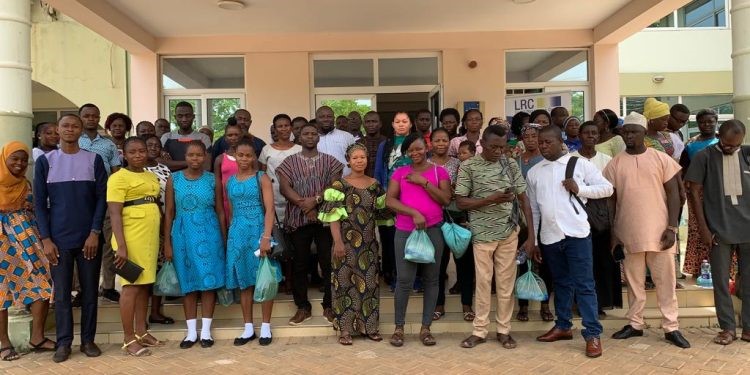
The Legal Resources Centre (LRC) has sensitized stakeholders from both the formal and informal sectors in the Upper East Region on climate change laws and energy transition.
The training, which was held in Bolgatanga, the regional capital, was aimed at equipping participants with the knowledge on the adverse impact of climate change and how legislations and policies under the Paris Agreement and the National Energy Transition Framework can be implemented to mitigate the negative impact of climate change.
Under the framework, Ghana is aiming to transition from the use of fossil fuels to the use of renewable energy by 2070, to ensure the attainment of the Sustainable Development Goals.
Speaking at the training, Programme Officer of the LRC, Enock Jengre, appealed to stakeholders to expedite action and dedicate themselves to reducing the impact of climate change in the region.
“We are faced with pollutions that affect the environment and our very existence. This means that we don’t have a place to live. We need to ensure that government fulfils its social contract with the people of Ghana by ensuring that by 2070 we have a nation free of pollution,” he said.
 “We can start from our various homes by driving less and walking more to reduce carbon emissions. We also need to have a transport system that is holistic and reliable to commute to and from work to further reduce pollution. Bush fires also contribute to climate change, so we need to ensure that our homes are well-ventilated and that we lobby governments and political parties on their commitment to climate change issues.”
“We can start from our various homes by driving less and walking more to reduce carbon emissions. We also need to have a transport system that is holistic and reliable to commute to and from work to further reduce pollution. Bush fires also contribute to climate change, so we need to ensure that our homes are well-ventilated and that we lobby governments and political parties on their commitment to climate change issues.”
Mr. Jengre noted that although funding for climate change mitigation in Ghana could be a major challenge, government must make efforts at providing the necessary resources to fight the menace to secure a liveable and sustainable future for all.
Some stakeholders from the private sector appealed to government to subsidize the prices of gas and cylinders to reduce the externalities associated with the overreliance on charcoal and firewood.
For industry players and academics, governments should invest in research and provide incentives for the acquisition and production of alternative technologies that are environmentally friendly.
District assemblies were also admonished to collaborate with traditional leaders to enforce environmental by-laws to safeguard the ecosystem.




